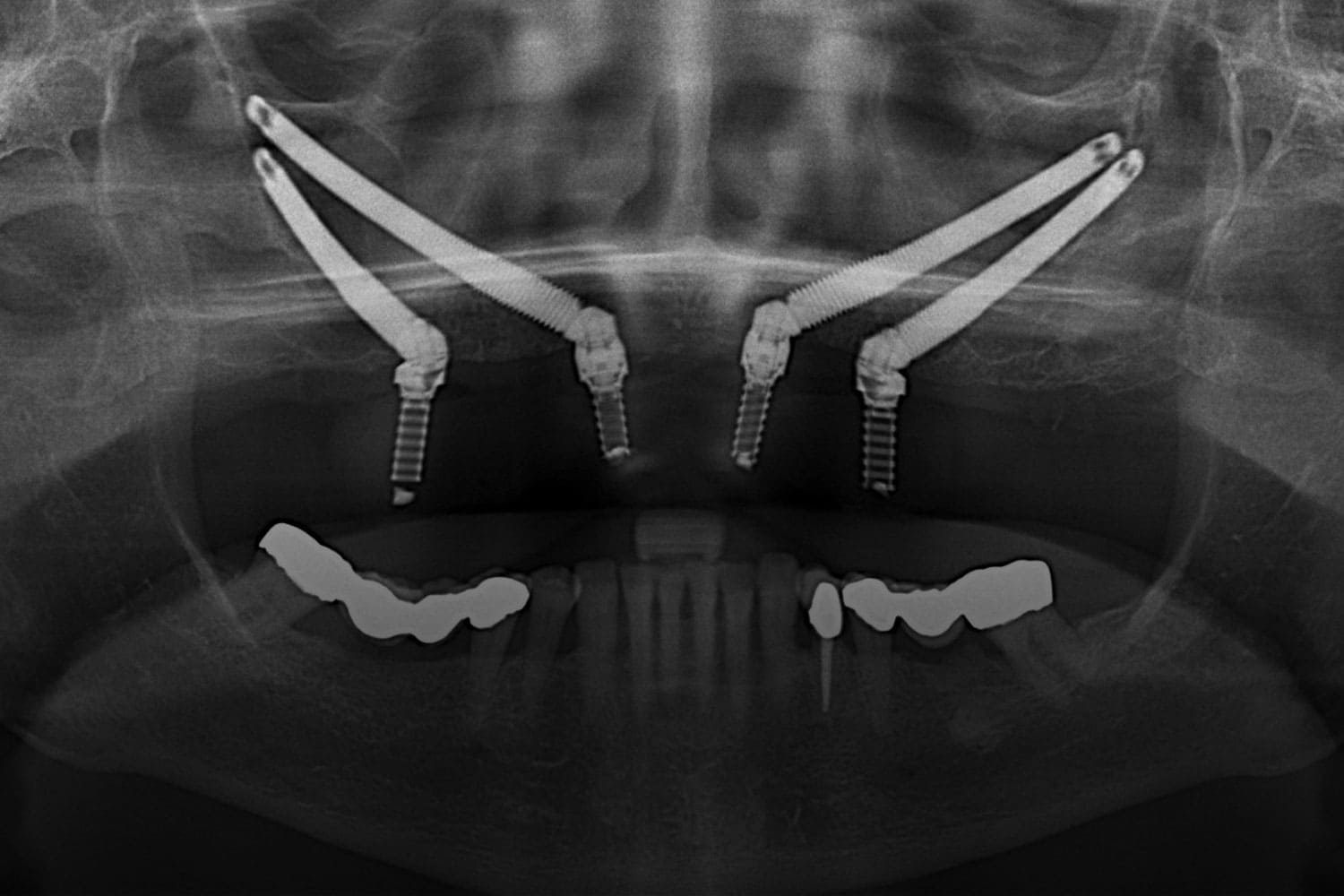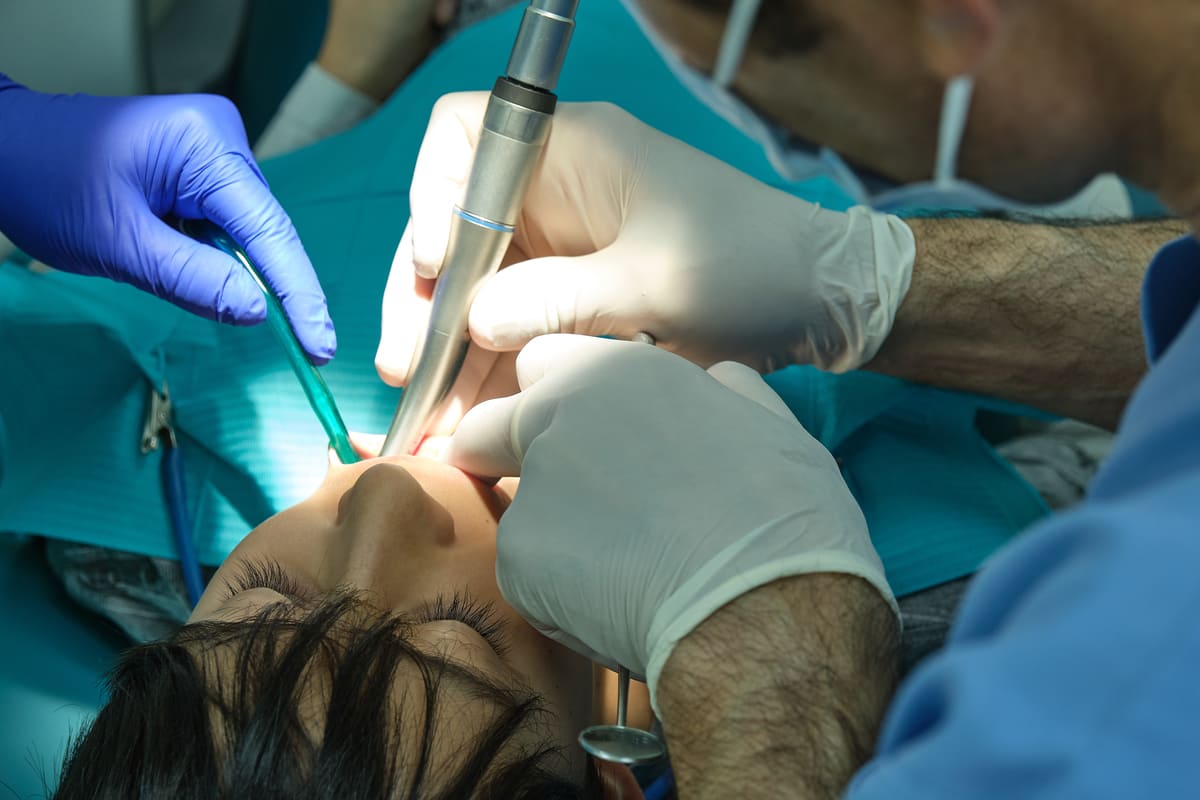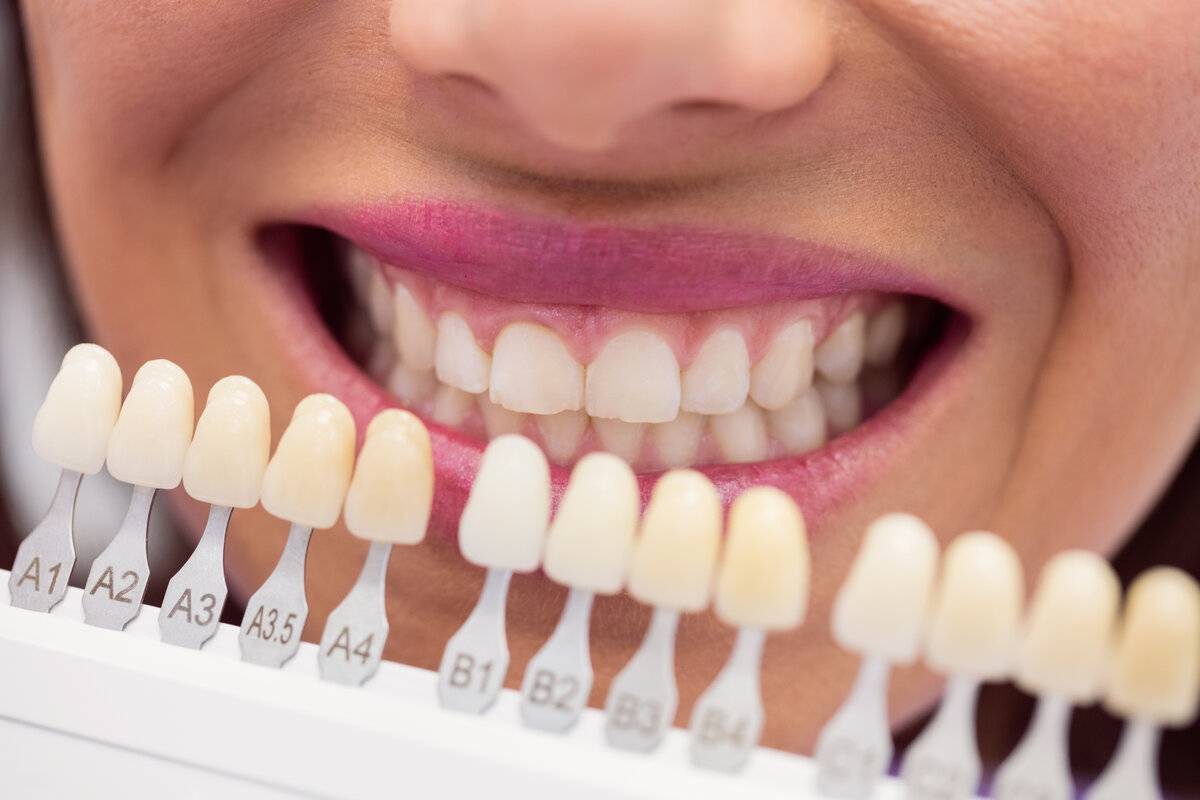The world of implant dentistry encompasses numerous treatments and not all of them are suitable for all patients. Each case is unique and requires a personalized and in-depth study to achieve a perfect denture. Surely you have heard about zygomatic implants as an option to rehabilitate the smile, but do you know everything they can do and if they are right for you? Today from Medident we give you all the details about this method.
What are zygomatic implants?
Zygomatic or zygomatic implants are titanium fixations that allow restoring dental pieces in patients with bone problems in the upper jaw and that until the arrival of these implants it was impossible to treat them with conventional treatments.
They are much longer than traditional implants (35 – 50 mm) and can be combined with them. They are placed in the lower part of the malar bone or cheekbone, specifically in the bone that gives them their name, the zygomatic bone. Generally two zygomatic implants are used and are combined with two or four other traditional implants or implants of the same type.
Which cases require rehabilitation with zygomatic implants?
This technique is not always recommended in implantology since it is specially designed to treat rehabilitation in the following cases:
Patients with little bone
People who have lost a sufficient amount of bone to make bone regeneration impossible for the placement of conventional implants are the most frequent case for zygomatic dental implants.
In these cases, bone loss occurs when the patient has been without teeth for a long time and the bone has not received the necessary stimulation to regenerate, which is known as bone resorption. This involves the gradual loss of the bone surrounding the teeth and can generally occur due to age, periodontal disease or the continued use of dentures, among others.
Patients who need bone graft surgery
This technique is also indicated for patients who want to avoid bone graft surgery, since bone loss or periodontal disease does not affect the placement of zygomatic implants.
Patients who need an intervention to correct malformations or defects of the upper jaw
Dental implants in the zygomatic bone are indicated for patients with severe atrophy of the upper jaw or who need to correct a malformation where conventional implants cannot be placed because of jawbone dysfunction. The zygomatic bone is very resistant and guarantees a firm hold of the implants, guaranteeing a permanent and effective solution.
They need teeth immediately
This implant method is a very efficient alternative to achieve a posterior maxillary fixation and the patient can be rehabilitated almost immediately. Only one surgical intervention is needed, unlike other techniques that require two or more interventions.
Main advantages of zygomatic implants
Zygomatic implants have certain advantages over other techniques, the most notable of which are the speed and excellent results obtained after placement:
Speed in the procedure
The patient can enjoy a complete and fixed prosthesis in just 24 hours, returning to their daily life immediately.
No need for hospitalization
The operation for the placement of a zygomatic implant does not involve more than a few hours in the dental clinic, so no hospitalization or sick leave is needed for recovery. In a few hours, the patient can lead a normal life.
Mild postoperative period
After the intervention, the patient will only feel slight discomfort and a slight swelling that will not last more than 3 days.
Immediacy
A single surgical intervention achieves a result that would usually be achieved after the implantation of several pieces. In this way you can enjoy a perfect new set of teeth from the very first moment.
Its high success rate
It is the option that achieves the highest success rate in complex and severely atrophic cases (and sometimes the only one possible).
Its durability
The insertion of these dental implants is performed, as we have seen, on the zygomatic bones. These are never resorbed, so the results are permanent even in cases with very severe maxillary bone atrophy.
Potential problems and disadvantages of using Zygomatic Implants
Like any treatment, there are certain drawbacks or possible complications in its application:
Their durability
The insertion of these dental implants is performed, as we have seen, on the zygomatic bones. These are never resorbed, so the results are permanent even in cases with very severe maxillary bone atrophy.
Potential problems and disadvantages of using Zygomatic Implants
Like any treatment, there are certain drawbacks or possible complications in its application:
Invasive and complex surgical procedure
Zygomatic implants require a complex procedure that includes a clinical diagnosis with scanner, a very strict surgical protocol, an invasive operation and a correct rehabilitation after the intervention.
In this regard, the placement of the implants requires a very meticulous technique, as it is based on the placement of long implants in the malar bone without bone grafts and emerging at the premolar level in the palate.
Some difficulty in speech may occur after the immediate placement of the prosthesis
The new prosthesis may be uncomfortable for the first few days after surgery. However, as the days go by this sensation will disappear and the patient will get used to his or her denture, recovering normal speech and chewing.
It is not suitable for all types of patients
Zygomatic implant dentistry is not recommended in all cases. For patients who do have maxillary bone, for example, traditional dental implant techniques are used. It is arguably a technique resorted to in the most severe cases of bone loss or where a dental implant is no longer an option.
Surgical technique summary for the placement of zygomatic implants
Diagnosis of the problem: The first phase is that of diagnosis and treatment for the patient before the intervention. At this point a specific and personalized clinical study is performed through photographs, X-rays, scans and analysis of the entire procedure to be followed.
2. Surgery: Zygomatic implants are inserted surgically and, therefore, anesthesia is required to put the patient to sleep and make him/her feel comfortable. Two to four zygomatic implants are placed (depending on each case). Afterwards, the provisional prosthesis is inserted so that, from the same day, the patient can have a completely normal day to day life.
3. Rehabilitation: After the period necessary for healing and in which possible complications or discomfort of the provisional prosthesis are reviewed, it is replaced by the definitive and fixed prosthesis.
How is the postoperative period after the placement of zygomatic implants?
The postoperative period is much milder for the patient, since the discomfort felt after the operation will be minimal. The most frequent is a slight inflammation that disappears in the first days and discomfort due to the new dental prosthesis in the mouth. The same day you can live a completely normal life with fully functional teeth.
Summary
If you are among the cases for which the insertion of zygomatic dental implants is recommended and you want to know more about this treatment and what it can do for you, contact us for a diagnostic appointment. At Medident we specialize in dental implantology, always using the most advanced techniques in the dental sector to ensure excellent and lasting results.









